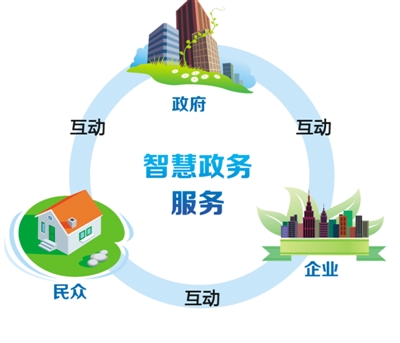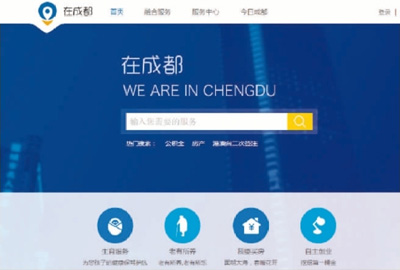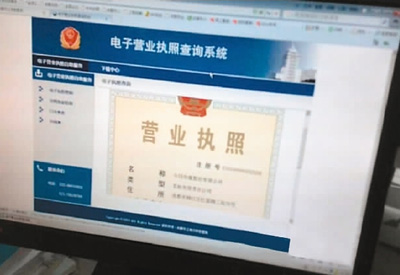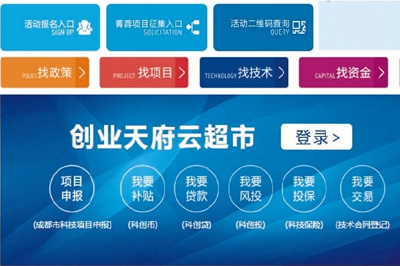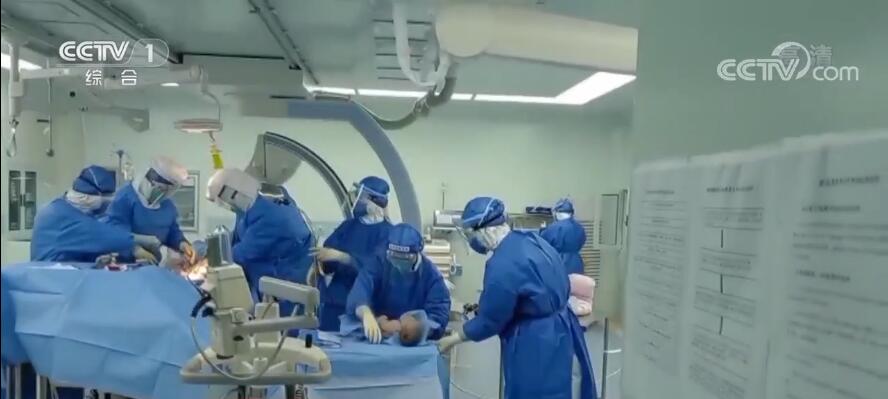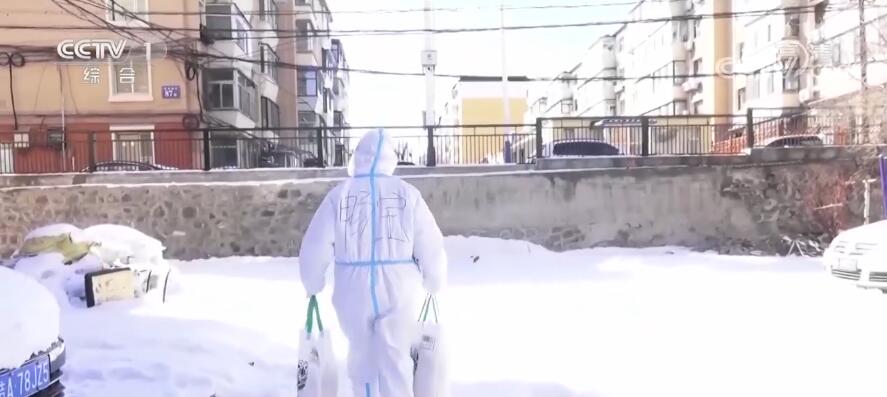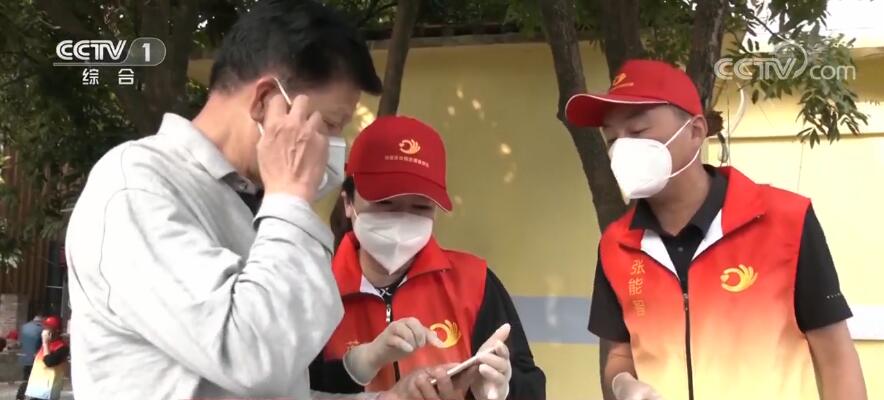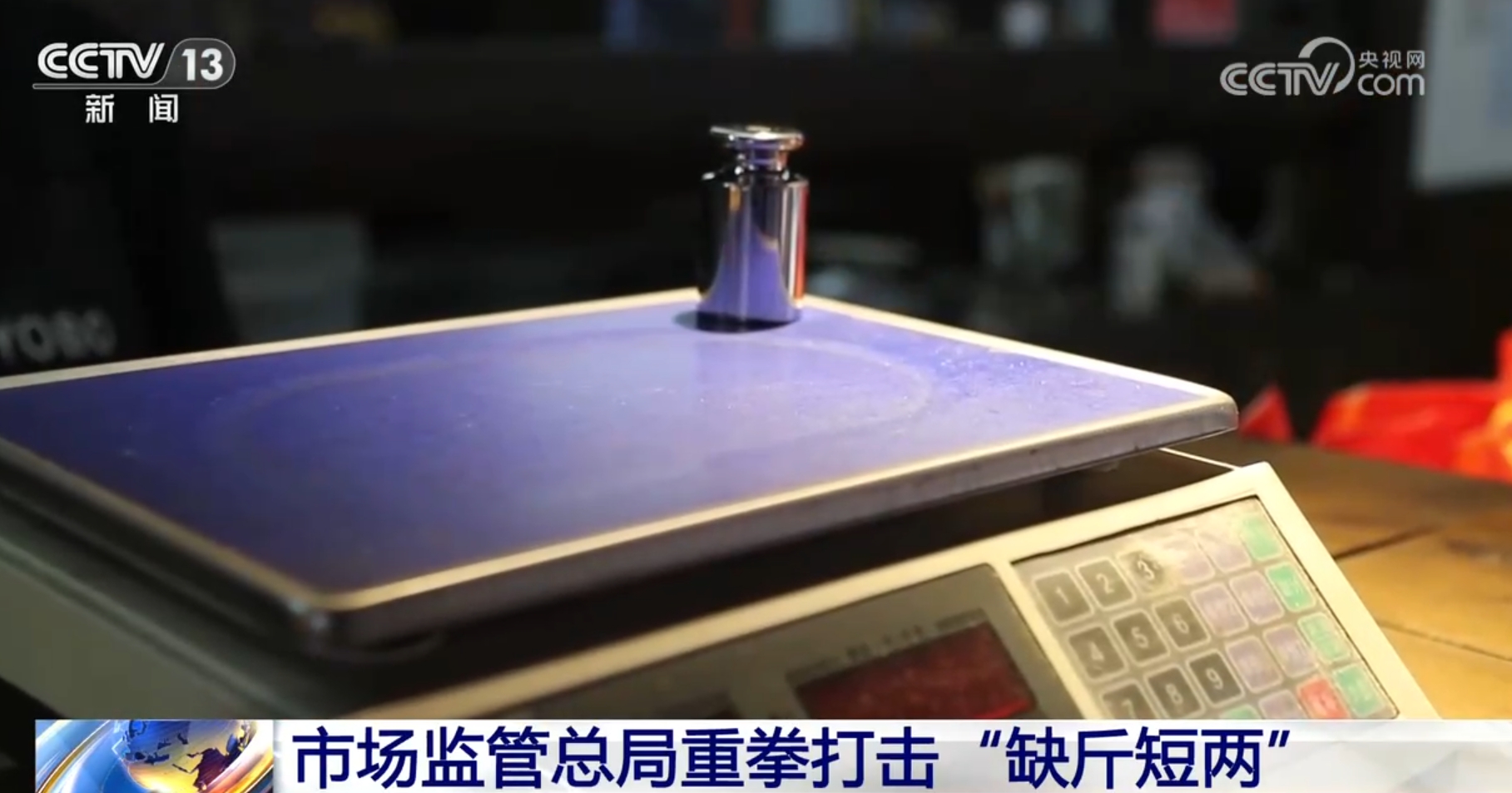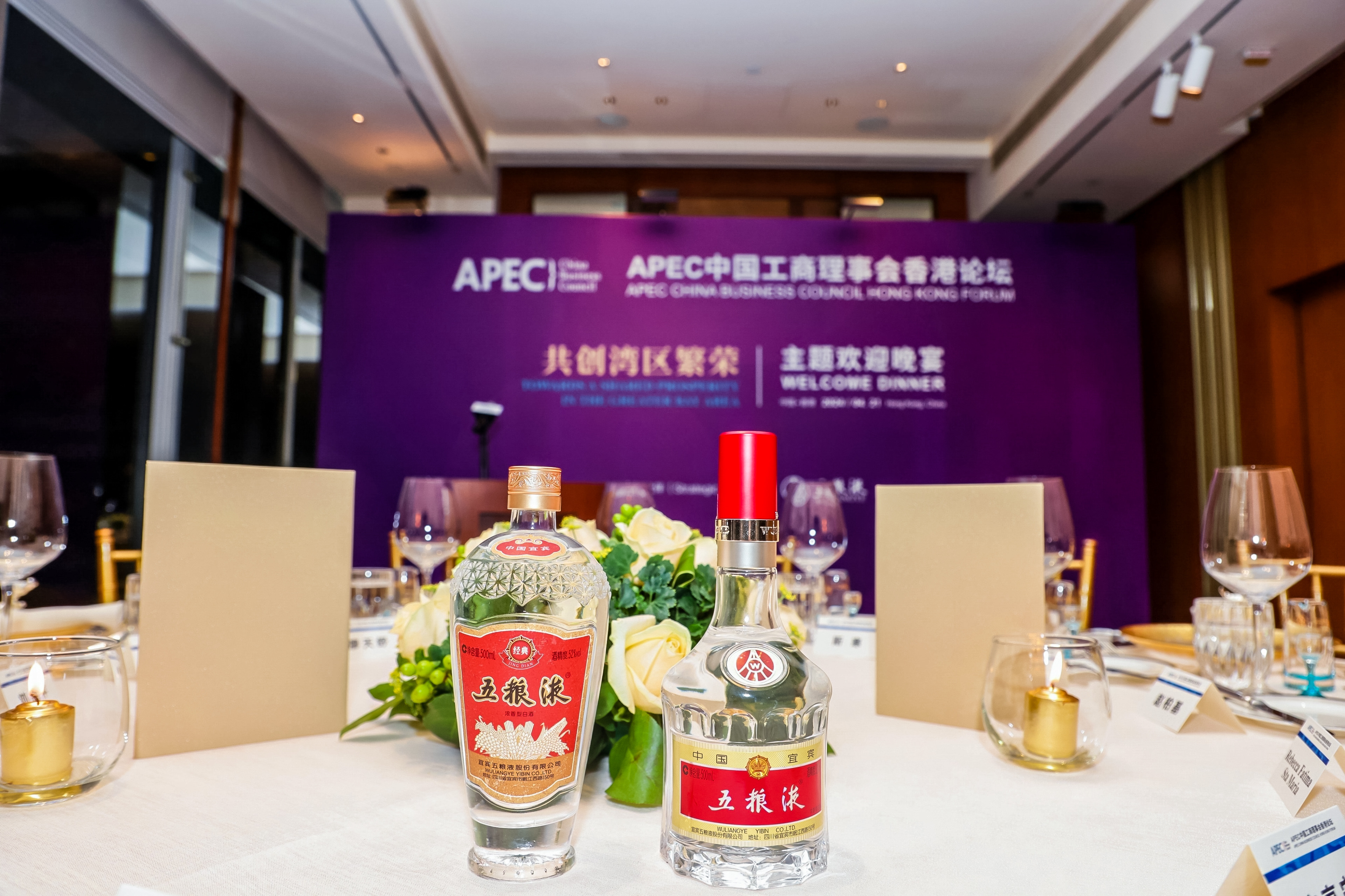Introduction: The confrontation between the United States and Iraq is constantly escalating! The Chinese Embassy in the United States advises and reminds China citizens in the United States to pay close attention to the local security situation and be vigilant.
Laiyuan 21st century business herald (ID: jjbd21; Reporter: Zheng Qingting), CCTV News, CCTV Finance, Global Times, news broadcast, Times Weekly, website of Chinese Embassy in the United States, Securities Times, Guan Wei of E Company, Niu Qinqin, etc.

Recently, after Qassem Sulejmani, commander of quds force, a subordinate of Iranian Islamic Revolutionary Guard Corps, was killed in an attack at Baghdad airport, cities all over the United States stepped up security measures, and Washington, D.C., was put on alert.
The Chinese Embassy in the United States advises and reminds China citizens in the United States to pay close attention to the local security situation, be vigilant, pay attention to safety precautions, and seriously consider going to public places. In case of danger or emergency, please call 911 in time.
If you need consular assistance, please call the 24-hour Global Consular Protection and Service Emergency Call Center of the Ministry of Foreign Affairs (01186-10-12308, 01186-10-59913991) or contact the Embassy and Consulate of China in the United States:
Embassy in the United States: 202-4952216
Consulate General in new york: 212-6953125
Consulate General in San Francisco: 415-2168525
Consulate General in Los Angeles: 213-8078052
Consulate General in Chicago: 312-7800170
Consulate General in Houston: 713-5219215
Latest news: Two US military bases were attacked by rockets.
The confrontation between the United States and Iraq has escalated!
According to the Global Times, the US-led coalition forces confirmed on Sunday (January 5) that there were rocket attacks near two Iraqi military bases in Baghdad and Ballard on Saturday night local time, but the attacks did not cause soldiers casualties.

"On the evening of January 4th, there were two rocket attacks near the Iraqi bases of the Coalition forces in Baghdad and Ballard, and there have been 13 attacks in the past two months," Colonel colonel Miles B. Carkins III, a spokesman for the Coalition forces, said in a statement.
On the evening of January 4th, just after Iran declared that it would "retaliate against the United States" for the death of Sulejmani, several rockets were attacked in Baghdad International District, Jadriya District and the American military base in Ballard.

Local people holding high Sulejmani’s head to demonstrate to the United States, source: CNBC
According to Iraqi military sources, on the evening of January 4, local time, the Baghdad International Zone (also known as the "Green Zone") where the US Embassy in Iraq is located was attacked by several rockets. The Jadriya District in central Baghdad and the Ballard American Air Force Base, 80 kilometers north of Baghdad, were also attacked that night.




Outside the US Embassy in Iraq
According to the report, the attack did not directly cause casualties. However, the local police revealed that five local people were injured by gunfire in the Jadriya district near the international zone.
No organization has claimed responsibility for the attack.
On January 3, local time, US President Trump issued a brief statement, saying that the United States took action to "stop the war" rather than "wage war". According to the US Department of Defense and the military, the United States will send 3,500 additional soldiers to the Middle East, and the additional troops will be deployed to Iraq, Kuwait and other regions.
On the 4th local time, Trump warned Iran that if Iran attacked any Americans or American assets, the US military would attack 52 important Iranian locations that had been targeted.
Trump killed Iran’s "Prince" and the video was exposed!
On the evening of the 3rd, Alahad TV, a subsidiary of quds force, released the images of the moment when Sulejmani, a senior Iranian general, was bombed. In the surveillance video of Baghdad airport, a rocket hit a row of cars parked at the airport.
Earlier, other media released live videos after the attack. In the video, the car body has been completely destroyed.
Sulejmani has always been the number one thorn in the side of the US military and a thorn in the flesh, ranking first in hit list. Many observers believe that he is the de facto second person in Iran and is likely to take over as the next supreme leader of Iran.

After Sulejmani’s death, Iranian Supreme Leader Ayatollah Ali Khamenei wept bitterly.
In March 2019, Iran’s Supreme Leader Ayatollah Ali Khamenei awarded Sulejmani the Solfar Medal, the highest medal in Iran. Its history can be traced back to 1858, which was abolished after the Islamic Revolution in 1979 and now it has been restarted. And it was awarded to Sulejmani for the first time, which shows that his position as the first person in the Iranian military is indisputable.

Sulejmani, considered as the "Prince", is known as the "spy king of the Middle East".
After Obama took office, he adopted the policy of shrinking from the Middle East. In 2011, he completed the withdrawal of Iraqi troops and began to improve relations with Iran. Sulejmani was removed from hit list and began to show his face.

The scene after the explosion
In the Syrian civil war, he persuaded Russia to support Assad, successfully turned the tide and weakened the influence of American allies in the Gulf countries in the Middle East.
In the war against ISIS, he took the opportunity to expand the Iranian Revolutionary Guard and the pro-Iranian armed forces. It can be said that Sulejmani is the number one Iranian anti-American leader.
Iranian general Sulejmani was killed, Iranian people took to the streets to mourn Sulejmani and protest against the United States, and some people tore up and burned the American flag.

▲ Protesters hold photos of Sulejmani.

▲ Iranian people burn American flags.
The "assassination" in the United States continues to arouse strong doubts.
The assassination of the Trump administration not only triggered strong condemnation from the international community, but also caused controversy in the United States.
Many people in the United States accuse
Petraeus, the former top commander of the US military in Iraq, said, "The shock and widespread impact brought by this action cannot be overstated."
Daglia Dasa Kaye, director of the Center for Public Policy in the Middle East, questioned the purpose of the Trump administration’s action: "What purpose is the United States trying to achieve? If the goal is to reduce Iran’s intervention in the region and reach a better nuclear agreement, it is hard to say how this action will help. "
Bolzu Dalagashi, a visiting senior researcher at the Middle East Project of the Atlantic Council of the United States (600558, Share Bar), believes that the assassination of Sulejmani is a "meaningless provocation" because Iran will choose a tougher and more cruel successor to retaliate against the United States …
Democrats in the US Congress accused Trump of his air strike decision, and called for limiting the president’s power because he did not inform Congress of the air strike.
In a statement, Speaker of the House of Representatives nancy pelosi accused Trump of "engaging in provocative and disproportionate actions", putting the lives of American soldiers, diplomats and others in further danger.
Schiff, the Democratic leader of the US House Intelligence Committee, said: "Trump owes Congress and the public an explanation about Iran."
Anti-war demonstrations were held in more than 70 cities in the United States
On the afternoon of the 4th, local time, more than 70 cities in the United States held protests to protest against the Trump administration’s air strike to kill Sulejmani, commander-in-chief of Iranian special forces, and to send 3,000 more troops to the Middle East, which escalated the tension between the United States and Iran.
In Times Square, new york, a large number of protesters held demonstrations, holding anti-war slogans such as "No War" and "America Withdraws from Iraq", calling on the United States to withdraw its troops from Iraq and end the war against Iran.
In Washington, D.C., protesters crowded the Lafayette Park opposite the White House. They also held signs with slogans such as "The United States withdraws from the Middle East", "Don’t go to war or sanction Iran" and "Stop bombing Iraq" and shouted "Without justice, there will be no peace."
On that day, protests were held in more than 70 cities including Chicago, Philadelphia, San Francisco, Los Angeles and Seattle. These demonstrations were sponsored by the American anti-war organization ANSWER Alliance, which was established after the September 11th attacks.
Afraid of being drafted, American youth paralyzed the website of military service registration Bureau.
In America, the word "Dodge Draft" is very popular.
Fearing that they would be drafted into the army because of the outbreak of war, a large number of young Americans flocked to the recruitment website for consultation, which once led to the paralysis of official website in the military service registration Bureau of the United States.
American netizens are worried, and there has been a discussion boom in social media, such as "Will there be a war between the two countries?" and "Will the United States recruit soldiers for this?".
American youths who have reached the age of 18 and filled out the military service registration and meet the requirements for conscription hurriedly search online for whether they will be drafted and how to "avoid conscription".
After the U.S. air raid on Baghdad on the 3rd, the search volume of Google keywords such as "age of conscription" and "avoiding conscription" surged. In addition, the website of military service registration Bureau, which is in charge of conscription registration, is paralyzed due to traffic overload.

Foreign media generally questioned.
Trump’s assassination also triggered widespread doubts from foreign media. Some reports quoted PJ Crowley, former assistant secretary of state of the United States, as saying, "Trump is not a great strategist. He lives in the present and acts on instinct. It would be surprising if he considered the consequences. "
Regarding the possible consequences of the American assassination, Ruan Zongze, executive vice president of the China Institute of International Studies, said:
The binding between the United States and the Middle East is based on historical and realistic interests, and it is impossible for the United States to just leave. On the one hand, American military spending has increased greatly; On the other hand, it is self-contradictory for the United States to talk about withdrawing troops from the Middle East.
This "decapitation" action by the US military against senior Iranian officials can divert the attention of domestic politics in the short term, which will add points to Trump, but it will also lead to a high risk of confrontation between the United States and Iran, and the Middle East will be more turbulent. The United States can’t get away with it, and the prospects are unpredictable.
Revenge! Iran’s counterattack is coming! What form of revenge may be taken?
Attack 35 important targets in the United States?
Gholamali Abuhamzeh, commander of Iran’s Islamic Revolutionary Guard Corps, said on the 3rd:
Iran reserves the right to retaliate against the United States and avenge the death of quds force commander Sulejmani in the air raid. The Strait of Hormuz is a vital passage for the west. Many American destroyers and warships pass through the Strait of Hormuz, Oman Sea and Persian Gulf. We have found the important goals of the United States in the Middle East a long time ago. For us, the 35 important goals of the United States in the Middle East are within reach.
Taking legal action to "hold the United States accountable"?
Iranian state television reported on the 3rd that Foreign Minister Mohammed Javad Zarif was the source, and Iran would hold the US side legally responsible for killing Sulejmani.
Zarif said: "This is obviously a’ terrorist act’ … Iran will launch various legal measures at the international level to hold the United States responsible for the assassination of Sulejmani."
The Iranian Permanent Representative to the United Nations, Maged Taht Rawanxi, wrote in a letter that the killing of Sulejmani by the US military was a "typical state terrorism" and a "criminal act" that violated the basic principles of international law, especially the Charter of the United Nations.
Launch a cyber attack on the United States?
A number of cyber security experts warned on the 3rd that "hackers" supported by Iran may use malware to attack American targets such as factories and oil and gas processing facilities.
The websites of many financial institutions such as Bank of America, new york Stock Exchange and Nasdaq Stock Exchange were attacked by hackers in 2012 and 2013, and their services were interrupted. After that, the server of a casino in Las Vegas was attacked by hackers, and gambling and hotel services were interrupted. The Associated Press reported that those "hackers" were supported by Iran in order to respond to US sanctions against Iran.
What form of retaliation might Iran take?
In the latest research report, ING research team analyzed the possible retaliatory actions taken by Iran and the possible consequences:
1. Oil tanker attack.
Last year, there were several attacks on oil tankers in the Gulf region, and Iran’s retaliation may be similar attacks. Although this action may bring a short-term upward space for oil prices, it is impossible to boost oil prices in a sustainable time. As it turns out, this was the case last year.

2. Disrupting oil transportation through the Strait of Hormuz.
If Iran tries to destroy or block the oil passage through the Strait of Hormuz, it will have a greater impact on oil transportation. More than one-fifth of the world’s oil supply passes through this narrow sea passage. Therefore, any attempt to stop oil transportation may push up oil prices. However, the United States will not be indifferent to this, which will only aggravate the tension between the United States and Iraq and increase the possibility of conflict.

3. Oil infrastructure attack.
Another form of retaliation may be to attack the oil infrastructure of American allies in the region. Last year, the Houthi armed forces dispatched 10 drones to attack the facilities of Saudi Aramco in Bougueq and Hureis, which reduced Saudi Arabia’s oil production capacity by 5.7 million barrels per day overnight. Now, the possibility of another such attack cannot be ruled out. Although Saudi Arabia has demonstrated its resilience to restore production capacity fairly quickly, the last incident did prove that Saudi oil infrastructure is vulnerable to similar attacks.
After the decapitation, the war is on the verge?
Will this attack lead to a full-scale conflict between the United States and Iraq? The market is jittery, what will happen in the future? On the evening of January 4th, CCTV Financial Review invited Guo Liyan, a researcher at China Macroeconomic Research Institute, and Liu Ge, a CCTV financial commentator, to visit the studio for in-depth analysis.
Guo Liyan: The focus of the conflict is the dispute over the order of petrodollars.

Guo Liyan, a researcher at China Macroeconomic Research Institute: The root cause behind the conflict is actually the dispute over the petrodollar order. In recent years, the US sanctions against Iran have been escalating, and Iran also wants to bypass the US dollar for settlement and continue to maintain oil trade with countries that need oil in the Middle East. However, this is not allowed by the United States, because the petrodollar order is a major interest that the United States needs to defend most at present, and there are obvious conflicts between the two. There may be specific reasons for targeting Sulejmani personally, but behind the whole conflict is actually the conflict between the United States and its allies, and Iran in the whole system order.
Liu Ge: Iranian anger may far exceed the previous conflict

Liu Ge, financial commentator of CCTV: Sulejmani is a household name in Iran, on the one hand, because of his work related to covert operations, and on the other hand, because of his legendary experience of civilian origin. In Iran, many people worship him very much, and he is a major general, which is the highest rank in Iran now. Therefore, the assassination of such an influential general, who was loved and worshipped like an idol, caused much more anger in Iran than those conflicts that occurred before.
Guo Liyan: The United States and Iraq are afraid of falling into an anxious state of no war and no peace.

If the United States wants to go to war, it needs parliamentary approval, and there are a set of procedural things. Another important reason is that all forces are mediating at present, hoping to curb the deterioration of the situation, so the probability of a large-scale conflict breaking out immediately is still relatively small. However, it is also difficult to make peace. It is not a year or two since Iran fought hard. This time, such an important person was assassinated, and it is difficult to explain it if nothing is done at home.
Liu Ge: Kill two birds with one stone with the United States at a fixed point.

First, the United States wants to moderately withdraw from the Middle East and not spend so much energy and money in the Middle East. However, if the United States withdraws, Iraq may become Iran’s sphere of influence, because the proportion of Iraqi Shiites close to Iran has already occupied an advantage, so the United States should curb such a trend in this way; In addition, one of the triggers of this incident was the demonstration and impact of the US Embassy in Iraq by the masses on December 31 last year, and the protest storm in Libya seven years ago led to the first ambassador who was killed in the attack in the United States after 1979, so this is also a problem that the US must guard against and solve.
Guo Liyan: Short-term market volatility intensifies and the long-term trend is hard to change.

Judging from the fundamentals of supply and demand, crude oil is definitely in an oversupply situation at present. As you can see, the OPEC agreement has been implemented. This time, the expectation is greatly raised in the short term, which has produced an impact fluctuation. If the conflict escalates further, it may also threaten the safety of energy channels and produce substantial supply cuts, thus raising the center of oil price fluctuation. The same is true of the price of gold, both of which have obvious short-term shocks, but the medium and long term depends on the fundamentals of the global economy.
Liu Ge: If the conflict intensity is out of control, the oil price will fluctuate greatly.
Although Iran does not have the foundation and strength to conduct a full-scale confrontation with the United States, the intensity of the conflict is sometimes difficult to say, which will bring great uncertainty to the supply of crude oil. At least in Iraq, the impact is relatively large, because Iraq is also a major oil producer. But whether the international oil price can rise to $80 or $100 on the whole is not necessarily.
Guo Liyan: Accelerate the reshaping of the new pattern of the global crude oil market

The fluctuation is not always rising, but it may be the increase of volatility. The global market supply and demand pattern of commodities and oil and gas, which are actually important this year, is reshaping. For example, the market dominance of the United States in the global oil and gas market is constantly increasing. In this process, the global crude oil market will face the formation and impact of a new pattern, and the volatility of related safe-haven assets and other industrial assets may increase significantly.
CCTV anchor comments:

This air strike by the United States is undoubtedly shocking to the global economy, and Iran’s retaliation is believed to be on its way. It is not yet known whether there will be more news. In short, such an unfavorable situation at the beginning of 2020 is not good news for global peace. Peace is still fragile and uncertainty is still strong!
Where is the market going? What do foreign analysts think?
For the global market, this is the first "black swan" in 2020. Judging from the latest situation, this "black swan" is getting darker and darker. On the day of Sulejmani’s attack, US stocks fell across the board, and international gold crude oil rose sharply, and overseas analysts commented on it in succession.
Oil prices may rebound to $60/barrel.
The escalation of the situation in the Middle East has caused concern in the oil market. Brent crude oil hit its highest level since the attack on Saudi oil facilities in September this week. WTI crude oil once hit an eight-month high of $64.09/barrel. Analysts and traders have a strong position on the majority of crude oil next week.

Looking back at history, in 2004, after the second Iraq war, oil prices rose by $10 a barrel overnight. But now, the existence of shale oil in the United States has become an important factor to deal with supply shortage and price increase.
Michael Widmer, a commodity analyst at Bank of America, said that from 2004 to now, the biggest factor that changed oil competition was that the rapid development of shale oil industry in the United States no longer depended on crude oil from the Middle East. He believes: "This air strike on Iran has no lasting impact on the global oil supply … Now, the rules have changed."
ING pointed out that in the past year, the oil market has performed quite well in coping with the large-scale oil supply interruption and the increasingly tense situation in the Middle East. This attitude seems to be partly due to the good balance between supply and demand in the global oil market. As it is still in a surplus environment, this trend will not change at least in the first half of 2020.
"Before we know how Iran will retaliate against the US air strikes, we will continue to analyze from the perspective of supply and demand. It is expected that the price of Brent crude oil will rebound to 60 US dollars/barrel this quarter."
Gold may rise to $1,600
In the period of geopolitical instability, precious metals are usually regarded as a sign of safe-haven assets. On January 3rd, COMEX Gold rose 1.77% to close at 1555.2 yuan.

Peter Hug, global trade director of Kitco Metals, said, "The escalation of the situation in Iran has made short sellers in the gold market stay away." He believes that technically speaking, the $1,555 area is very important for gold. If we can break through this point, many gold bulls will enter the market. "By then, the price of gold may be much higher, and it may test $1,600." In addition, sugar also said that the strength of the US dollar will support the price of gold.
According to data from Royal Bank of Canada Capital Markets, the rise in gold prices in 2019 marks a positive change in investors’ attitude towards gold. The agency predicts a further increase this year and next. Goldman Sachs, Citigroup and UBS Group AG all set the gold price target at $1,600 per ounce.
Investors "voted with their feet" and funds poured into the US-Germany bond market.
In terms of bonds, after the air strikes in the United States, investors "voted with their feet", and a large amount of funds pushed up the price of gold, but also poured into the bond market. The yields of German government bonds and US government bonds (generally considered as the safest assets) have fallen sharply.
Goldman Sachs believes: "Whenever a major event causes panic at home or abroad, interest rates will go down."
Matthew Graham, chief operating officer of Mortgage News Daily, said: "The market’s concerns about the situation in the United States and Iran will lead to another decline in the yield of government bonds."
Antoine Bouvet, a senior interest rate strategist in London, also believes that even if the storm does not continue to deteriorate, "the bidding for US Treasury bonds and German government bonds should last at least a week."
America’s long-term bull market has not changed?
US stocks fell across the board on Friday. Among them, the Dow fell 0.81%, the S&P index fell 0.71%, and the Nasdaq index fell 0.79%.

The sharp rise in oil prices has also had a certain impact on other countries, especially those oil importing countries with large manufacturing industries, such as Germany and Italy. These countries’ stock markets performed worst on Friday, with their main indexes falling by 1.4% and 1.1% respectively.
The economic data of American manufacturing industry is lower than expected, which has formed a "double suppression" on the stock market. The data shows that the ISM manufacturing index of the United States in December 2019 was 47.2, the lowest in a decade and significantly lower than market expectations. Worried that the rising oil price may lead to economic recession, geopolitical factors including North Korea and the impeachment of President Trump, Wall Street investors chose safer assets and a large number of funds withdrew from the stock market.
However, David Donabedian, chief investment officer of CIBC Private Wealth Management, said that the stock market is in its best annual increase since 2013, and investors should not regard new geopolitical risks as a major threat to this long-term bull market.
"Our views on the bull market have not changed. Iran is something that must be paid attention to, but investors should not overreact. The inflation rate, monetary policy stance and strong corporate income in the United States are powerful signs of economic strength. In addition, the upcoming Sino-US trade agreement is also a major positive for the stock market. "
[Share] Niu Qinqin: In 2020, the first war will begin!
(Note: Excerpts from some chapters)
Why did Trump suddenly approve the beheading?
On the surface, it was in retaliation for the Iraqi people’s siege of the US Embassy and issued a severe warning to Iran, warning that the United States would not tolerate the second embassy hostage crisis and would not repeat the tragedy in Benghazi, Libya.
On September 11th, 2012, a group of militants suddenly besieged the Consulate General in Benghazi, USA. Stevens, the US ambassador to Libya, who was in the consulate, had no way to escape and eventually died. This is also the first time in 33 years that an American ambassador abroad died in an armed attack, which has also become an important stain on Hillary’s presidential election.
But the assassination of Sulejmani, the situation is far more complicated than this, from the beheading action:
1, the United States secretly controlled the specific whereabouts of Sulejmani and others, there must be an insider.
2. After grasping the target, the United States quickly launched an air strike, showing its superior execution ability.
3. Crucially, Trump showed his adventurous and impulsive side, not afraid of the expansion of the war.
You know, according to media reports, as early as 2014, Israel almost launched an attack on Sulejmani, but it was finally stopped by Obama, because once the assassination was successful, the consequences were too unpredictable.
Revenge is simple, but politicians must be rational and clarify what is a temporary quick and what is a long-term problem.
I also believe that the United States must have grasped Sulejmani’s every move for a long time, but it has been slow to launch an attack for fear of unpredictable consequences.
But Trump finally ignored it and launched an attack.
Therefore, French Deputy Foreign Minister Montcharing said: We woke up in the morning and found that the world is more dangerous.
The Russian Foreign Ministry condemned that the United States’ assassination of Sulejmani was reckless and threatened peace and stability in the Middle East.
UN Secretary-General Gutierrez warned: We can’t stand another war in the Gulf.
Therefore, in the US Congress, many Democratic Party members criticized Trump for doing things recklessly.
Nancy Pelosi, Speaker of the House of Representatives, said that "the primary task of American leaders is to protect the lives and interests of Americans", but Trump "participates in provocative and disproportionate actions", which further puts the lives of American soldiers, diplomats and others at risk.
Therefore, on American social media, the "World War III" has been hotly searched. Watching the excitement is not too big, but worrying. The most pitiful thing is those Americans whose families are in the Middle East. In the following years, they will undoubtedly live in fear.
The war was overcast. On January 3rd, the American stock market plummeted and gold was looted. What really happened was that when the cannon rang, the price of gold soared.
The most important thing, next, how will it develop?
It can be said that next, every hour, every day, is very critical, and there may be a river of blood.
1, revenge is inevitable. Therefore, the American embassy issued an urgent notice, and the wind was tight! All Americans, run as fast as you can. Americans are probably packing and evacuating in a hurry.
2, there are always too late to run, do not rule out becoming the object of revenge. These tragic revenge scenes will soon spread on the internet and stimulate the nerves of Americans.
3. Revenge is definitely not limited to Iraq. Don’t forget, "quds force" has extensive influence in many Middle Eastern countries, and American targets in those areas are undoubtedly on high alert.
4. Even though the Iranian top level is restrained, even if "quds force" doesn’t take the initiative, according to the custom in the Middle East, it is not excluded that some radicals take revenge in anger. A photo of the American general as the target of assassination has been widely spread on the Internet.
5. After retaliating against American targets, the United States will definitely retaliate more violently. Next, explosion conflicts will continue. This is an asymmetric war with rivers of blood.
6. More likely, there will be a low-intensity "proxy" war in a third country. Hezbollah, Hamas, Hussein’s armed forces, etc., will not sit idly by, and they will all prove their strength to the United States and Israel. It’s a blood shed.
7. The assassination will also subtly change Iran’s political ecology. Iranian hardliners will be tougher and will not compromise easily. The succeeding supreme commander of quds force will be more careful and less soft-hearted towards American goals.
8. The intensification of confrontation between the United States and Iran will also change the pattern of the Middle East. Saudi Arabia will speed up its preparations, Israel will not be soft, Turkey will take advantage of the chaos to expand its territory in the Middle East, and Russia, which has heavy troops stationed in Syria, will certainly not be inactive.
9. Trump will boast about his martial arts, but if the war spreads and American casualties expand, his political enemies will attack him for his impulsive adventure and lack of strategy. Under the special political ecology of the election year, this incident will continue to ferment.
At the same time, at least in the short term, European and American stock markets will be under pressure and gold prices will soar. This should be a real black swan, but it will never be the last one.

Image source/Niu Qinqin
The only thing that is slightly fortunate is that although the United States launched an attack on Iranian targets, it avoided Iran. The cost of war is too high. The United States does not want to fight, and Iran should not want to fight.
But what is not fortunate is that guns are ruthless after all. Once they are red-eyed, it is not a national border that can be isolated. Therefore, both sides are preparing for the worst. The United States has deployed heavy troops in the Middle East and urgently sent more troops to the Middle East.
Don’t forget, many tragic wars broke out. At first, they were just a casual flame, but they took revenge step by step and eventually fell into the quagmire of war.
The year 2020 has just begun, and it will soon be the year of the Gengzi in the lunar calendar. The Middle East is already covered with war clouds, and both sides are on high alert.
For Americans in the Middle East, this New Year is really like a nightmare, but this nightmare has just begun.
When you read an article, you say: This incident does not mean war, nor does it lead to war, nor does it create war risks, because it is war.
This article first appeared on WeChat WeChat official account: 21st century business herald. The content of the article belongs to the author’s personal opinion and does not represent Hexun.com’s position. Investors should operate accordingly, at their own risk.
(Editor: Wang Zhiqiang HF013)
